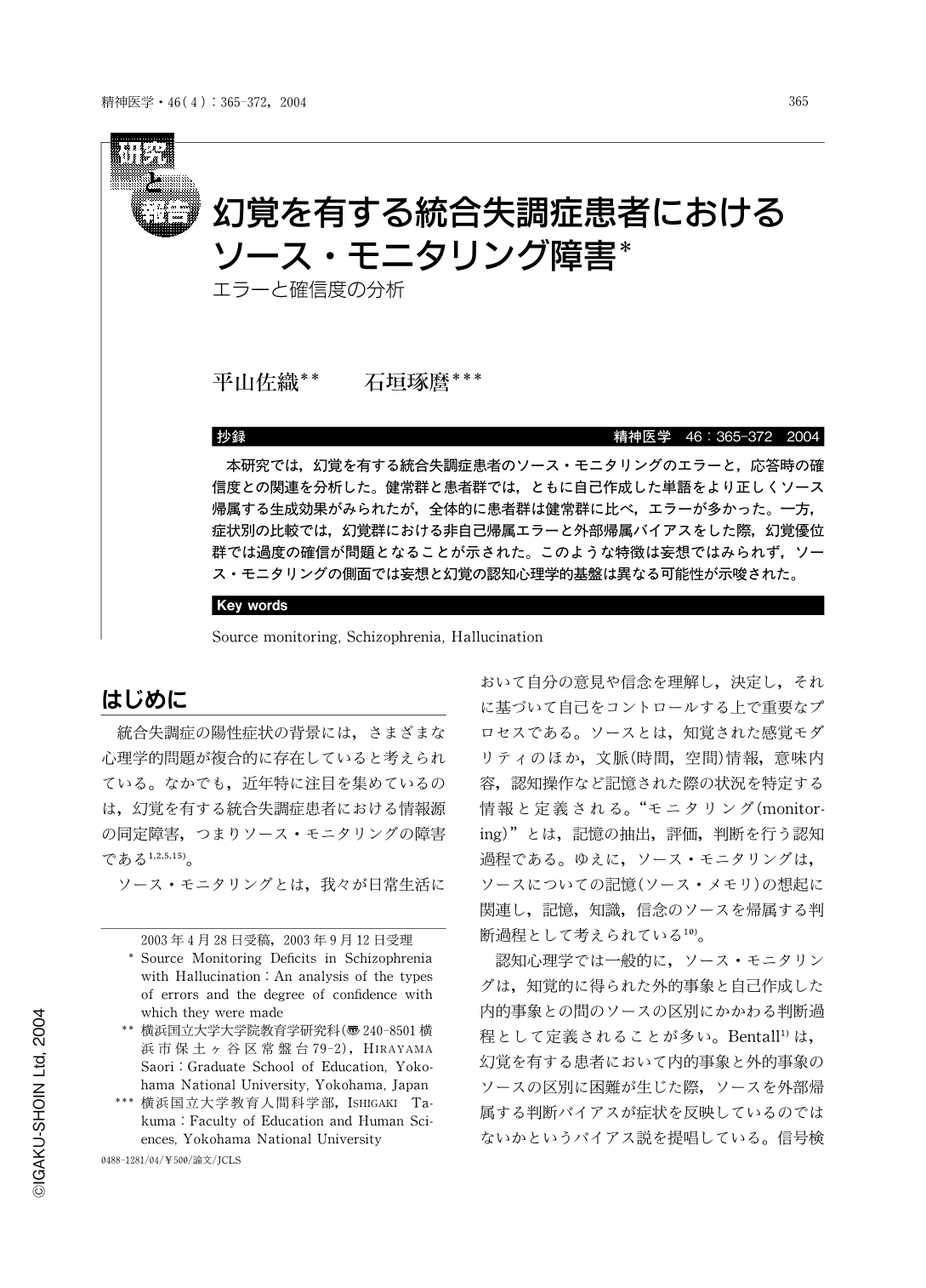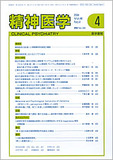Japanese
English
- 有料閲覧
- Abstract 文献概要
- 1ページ目 Look Inside
抄録
本研究では,幻覚を有する統合失調症患者のソース・モニタリングのエラーと,応答時の確信度との関連を分析した。健常群と患者群では,ともに自己作成した単語をより正しくソース帰属する生成効果がみられたが,全体的に患者群は健常群に比べ,エラーが多かった。一方,症状別の比較では,幻覚群における非自己帰属エラーと外部帰属バイアスをした際,幻覚優位群では過度の確信が問題となることが示された。このような特徴は妄想ではみられず,ソース・モニタリングの側面では妄想と幻覚の認知心理学的基盤は異なる可能性が示唆された。
Summary
Source monitoring, judgments about the origin of information, have been found to be more prone to error in schizophrenic subjects than in normal ones. The present study attempted to extend previous research on source monitoring deficits in schizophrenia. We attempted to examine source monitoring errors and the degree of confidence regarding attribution errors in schizophrenic patients with hallucination.
Method Thirty schizophrenic patients and 30 normal participants performed a source monitoring task. The task used in this study was developed by Vinogradov et al (1997), and adapted and translated into Japanese. The participants were required to name the source, and state their degree of confidence for the source attribution. In addition, patients were assessed on current psychiatric symptoms, and IQ.
Results The schizophrenic patients had a normal generation effect but made more errors than the comparison participants in identifying the source of target words. By comparison between symptoms, patients with hallucination showed a higher confidence regarding certain errors.
Conclusions Schizophrenic patients made significantly more errors than normal, but not with the generation effect. Especially, by comparison between symptoms, it was inferred that a core cognitive deficit underlying hallucination is an overconfidence regarding certain misattributions.

Copyright © 2004, Igaku-Shoin Ltd. All rights reserved.


